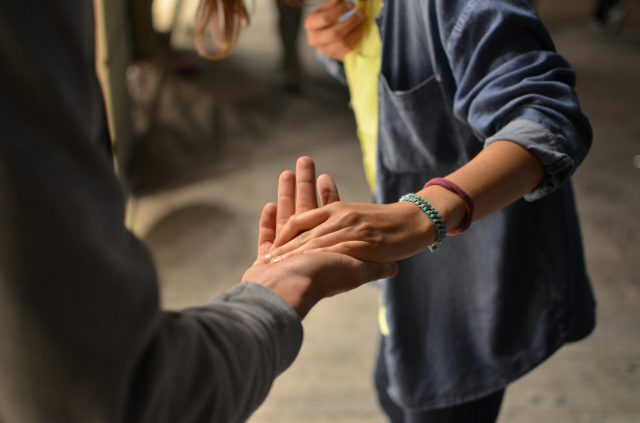
Masking and attunement
If you masked your way through life well enough that you didn’t get the label of autistic – maybe you were labeled other things: quirky, different, weird, unmotivated, all sorts of different things, but you didn’t get autistic – you masked well enough that you have learned quite a bit of neuro-normative social skills, a lot of the standard expectations.
Maybe you didn’t always get it quite right. Things were just a little bit weird, a little bit off, a little bit whatever. (That’s the mask being off, by the way, not you.) But you have learned a lot of what is expected, a lot of how to read other people, a lot of being able to pick up signals from other people.
Especially if you’re also struggling with rejection sensitivity, or people-pleasing, or fawning – those are all signs that you’ve learned quite a lot of tuning into other people. Even if you don’t always get it right, there is a lot of skill set there.
After you unpack enough of the trauma history, enough of what’s causing the people-pleasing – and yes, I am using the word trauma intentionally. It may not be the kind of big one-time-specific trauma, but just these little moments of rejections, these little moments of non-acceptance that build up over and over and over throughout your life, that basically give you the message that it’s not okay for you to be who you are, and therefore you learn how to try and fit in as well as you can. Those are complex traumas.
Tuning in
So after you’ve done enough of the unpacking of that and healing some of that, those skills are still a part of you, the skills of how to read people, the skills of how to attune to other people. And attunement is something that you can do. It’s not a trauma response. Masking is a trauma response. But attunement is intentional. It’s thoughtful. It connects with other people in the kind of positive way that most of us want.
That’s the good part of being around people, when it does work well, when it feels good, when you feel comfortable in your own skin, and other people feel comfortable in their skins, and you feel comfortable with each other. That’s the good part of attunement.
But attunement is intentional. It’s thoughtful. It connects with other people in the kind of positive way that most of us want.
And attunement takes those same sort of people-reading skills that you have developed.
So I just wanted to highlight that this is where it can go. This is what can be possible. And if you can imagine that this is something that could be in your future, what would that look like? What would your interactions with people be if you didn’t have the trauma responses, but you had the ability to attune?
You don’t have to have an answer to that right now. Just a thought experiment. Just an idea. I was just talking with someone about this and found it might be something that other people would find helpful as well.
Alright, if you’re looking for other posts from me about the late-identified autism journey, I talk about all sorts of different aspects of that. Like once you figured out in adulthood that you’re autistic, what to expect, what to come next, how to deal with it, how to reframe your life. All the different parts. Self-acceptance is a big part of that, building self-trust again.
Okay, now I’m just getting ramble-y, but you can find my other posts on my YouTube channel and my blog. And I will wish you a neurowonderful day.
